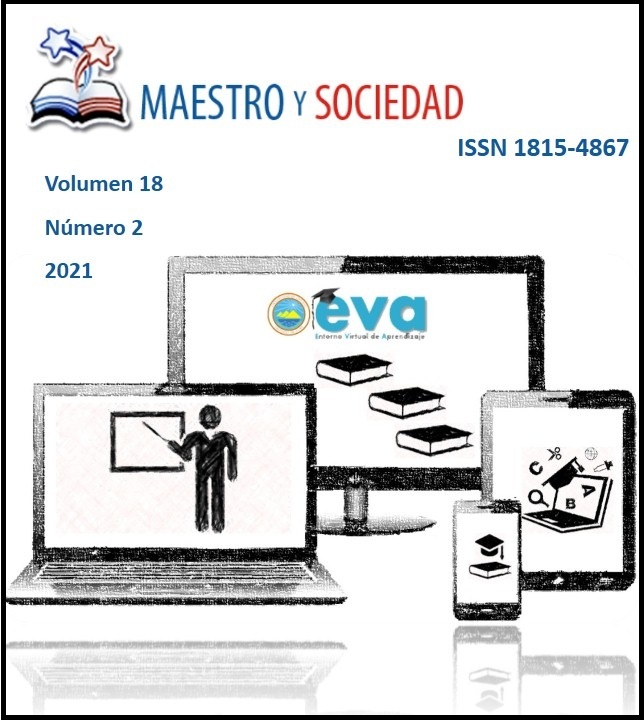The fortification of the cultural identification in students of first year of Licentiate in Education, Spanish-Literature
Array
Keywords:
culture, identity, identification, Spanish-LiteratureAbstract
Language is a reflected of culture and identity. The martiano´s work is a suitable vehicle to strenghen it, that´s why it´s integration. The elaboration and application of a didactic procedure for the fortification of the cultural identification in the students of finst year of licenciate in Education, Spanish-Literature in the University José Martí, situated in Sancti Spíritus has a great usefulness. The research has as an objective to construct a procedure that allows the sts´ know abaut their cultural expressions. Where, they´ll be able to recognize distinguish and get involved with their identity formation. For the development of this work we´ll applied methods and techniques such as inductive-deductive, analitic-synthetic, historic-logic, system approach, observation, intervien, inquiry, analysis of documents, discussion groups, field notes. The didactic procedure has three stages: preparatory, execution and evaluation. This result was constructed by means oftheorics budget studied and strengthens and weaknesses detected in the diagnosis.
References
2. António, A. J., Santiesteban-Labañino, M. y Bravo-Rodríguez, Á. L. (2019). Cultura e identidad desde el estudio de la lengua oficial y los dialectos en Angola. Maestro Y Sociedad, 16(3), 472-484. Recuperado de https://maestroysociedad.uo.edu.cu/index.php/MyS/article/view/4949
3. Cintra-Lugones, Á., Céspedes-Acuña, J. y Bermeo-Velez, A. (2016). Enfoque teórico-pedagógico de la cultura para la labor educativa. Maestro Y Sociedad, 13(2), 185-196. Recuperado de https://maestroysociedad.uo.edu.cu/index.php/MyS/article/view/1100
4. Díaz-Canel, M. (2018). En la clausura de la Primera Conferencia del Sindicato de los Trabajadores de la Cultura (SNTC). (s.p.e.).
5. Gómez-Rodríguez, B. (2016). La formación jurídica en la educación superior en Cuba: contribución desde el patrimonio cultural. Maestro Y Sociedad, 13(2), 295-304. Recuperado de https://maestroysociedad.uo.edu.cu/index.php/MyS/article/view/1187
6. Cubadebate. (2016). Lineamientos de la Política Económica y Social del Partido y la Revolución para el período 2016-2021. Recuperado de www.cubadebate.cu
7. MINED. (2001). Seminario Nacional para Educadores. La Habana: Ministerio de Educación.
8. Minujin, A y Mirabent, G. (1989) ¿Cómo estudiar las expresiones pedagógicas de avanzada? La Habana, Cuba: Editorial Pueblo y Educación.
9. Rodríguez, M. L. (2008). La oralidad una vía para el desarrollo en la competencia comunicativa en los escolares rurales del II ciclo de la escuela primaria rural. (Tesis de doctorado). ISP “Frank País”, Santiago de Cuba, Cuba.
10. Silvestre, M. y Zilberstein, J. (2002). Hacia una didáctica desarrolladora. La Habana: Editorial Pueblo y Educación.
Published
How to Cite
Issue
Section
License
This journal provides immediate open access to its content, based on the principle that offering the public free access to research helps a greater global exchange of knowledge. Each author is responsible for the content of each of their articles.



























 Universidad de Oriente
Universidad de Oriente 